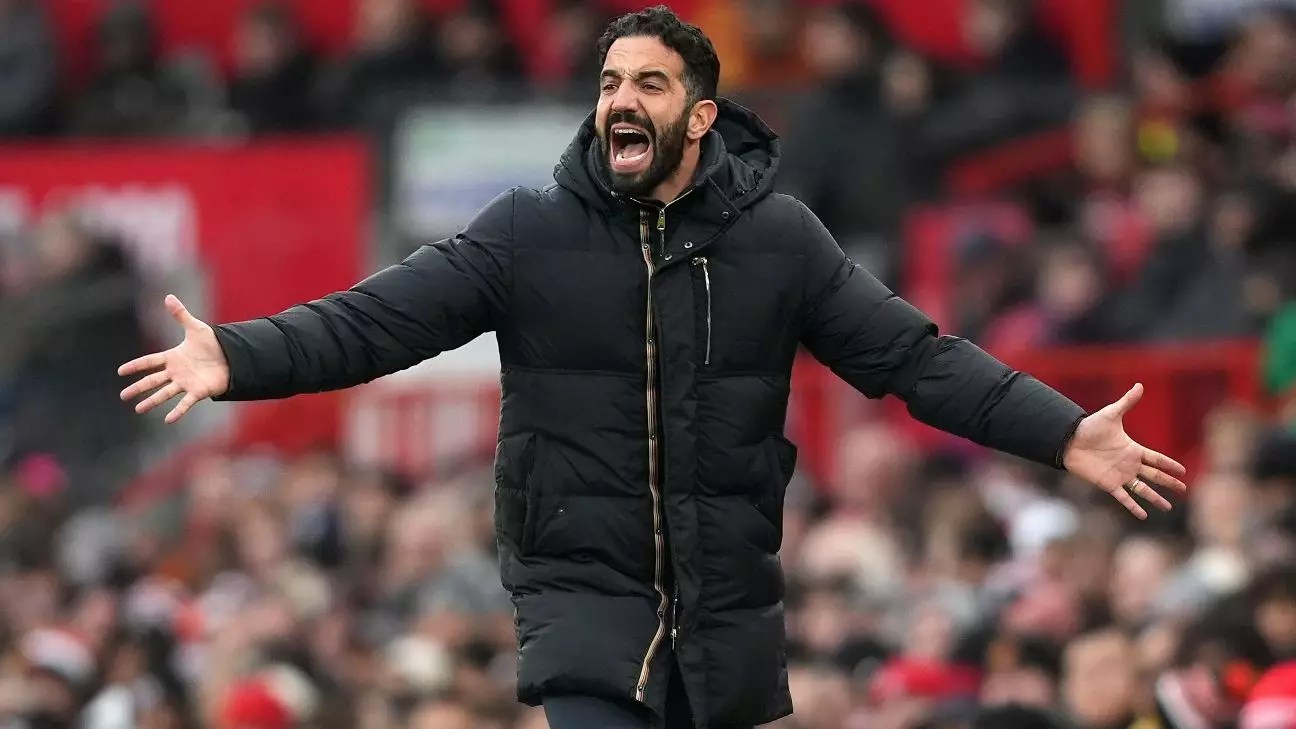Ruben Amorim, the head coach of Manchester United, finds himself navigating perilous waters as he battles not just for victories, but for his own position during a tumultuous season. Since taking the reins at Old Trafford in November, Amorim’s leadership has been characterized by inconsistency, with seven losses out of his first 13 Premier League matches. Such a record inevitably raises eyebrows among fans and pundits alike, who question whether this young coach can weather the storm in a notoriously unforgiving environment.
The stark reality is that the pressure cooker atmosphere of a top-tier football club demands excellence. Under Amorim, United’s home ground has not been the fortress it once was, with five defeats at Old Trafford alone. Instead of fostering hope, this has bred skepticism, an unsettling feeling that the club is treading water in a sea of uncertainty. Amorim himself expressed awareness of the gravity of his situation, openly admitting to a “fight for jobs” mentality as the critical summer months loom.
In the lead-up to an important FA Cup tie against Leicester City, Amorim’s comments provide insight into his perspective on the club’s direction. He acknowledges the risks inherent in his decisions, stating, “I knew when I came here, I look at the schedule, I look at the team, and I understood my decision of changing everything in the middle of the season without new signings.” This statement encapsulates the dual nature of ambition and realism that any manager faces, particularly when tasked with revitalizing a longstanding institution like Manchester United.
Moreover, the decision to limit January transfer activity raises questions about the club’s strategic foresight. While two defenders were brought in—Patrick Dorgu and Ayden Heaven—the departure of key attacking talents like Antony and Marcus Rashford underscores a concerning trend of diminishing options in vital areas of the pitch. The lack of proactive measures in bolstering attacking prowess places additional burdens on Amorim and the team, which has already shown vulnerabilities in converting opportunities into goals.
Despite these challenges, Amorim asserts that the current phase should be viewed as a calculated risk rather than a reckless gamble. He emphasized a commitment to cultivating a specific style of play and player profile, suggesting that he envisions a long-term project—one that requires patience and confidence from both the management and fans. The reality, however, is that such philosophies are prone to scrutiny, especially when immediate results are lacking.
To add another layer of complexity, Amorim’s acknowledgment of the importance of training time hints at systemic issues within the club, where insufficient preparation has been a recurring lament. As he states, “we will have time to train because I’m always complaining about the time to train.” This leaves one to contemplate whether his hand has been oversubscribed; can a cohesive unit truly emerge without the essential workshop of practice?
Another significant aspect of Amorim’s situation is the recent confirmation of Rashford’s loan move to Aston Villa. This transfer not only alters the team’s attacking dynamics but also shifts the burden of expectations onto the new arrivals and existing players. The United coach’s light-hearted reference to other managers absorbing the questions related to Rashford underscores an attempt to deflect criticism while simultaneously asserting his control over the squad’s evolution.
As United’s season progresses, the crossroads of ambition and reality looms larger than ever. The skepticism among supporters is palpable, and Amorim is aware that results will determine the narrative. The uncompromising nature of football means that even the most visionary strategies falter without immediate successes etched in the win column. With only time, training, and tactical acumen at his disposal, Ruben Amorim stands at a pivotal juncture that could define his future at the club and beyond.


Leave a Reply